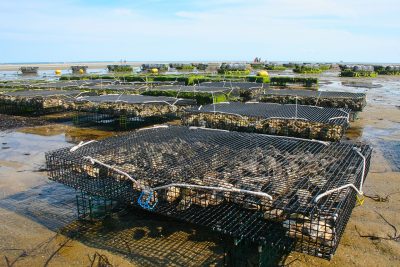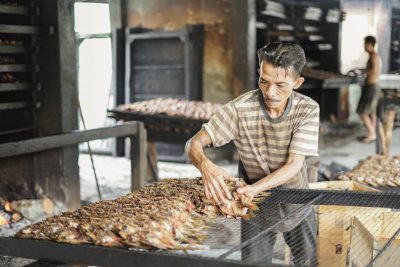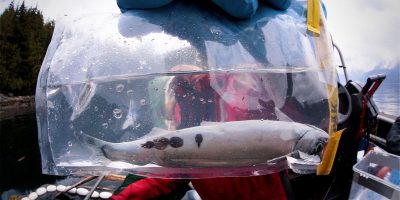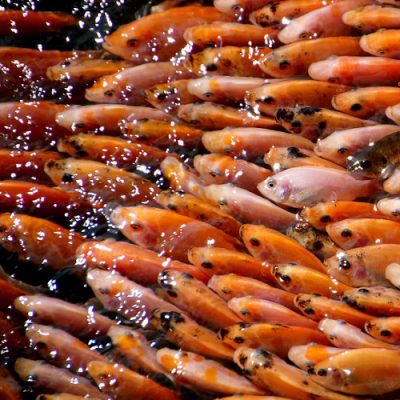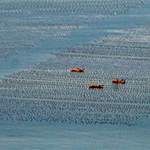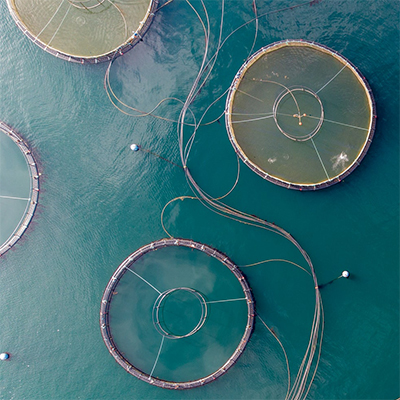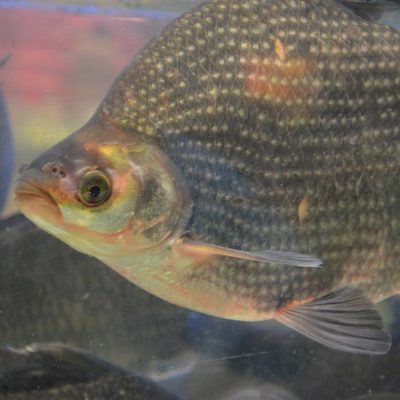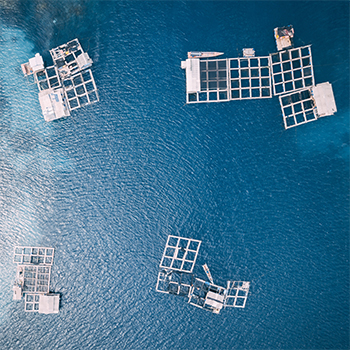Properly done, aquaculture has the potential to produce food for millions of people, conserve and restore ecosystems and replenish endangered wild fish stocks.
Posted in 2024, IOFNews, News Release | Tagged with Aquaculture, biodiversity conservation, Climate change, fishing farms, food security, IOF students, Rashid Sumaila, Research, William Cheung
This could be reduced to a roughly 10% decline if the world were to meet the Paris Agreement targets of limiting global warming to 1.5 to 2 degrees Celsius – which recent reports have shown we’re not on track to achieve.
Posted in 2023, IOFNews, News Release | Tagged with Aquaculture, CORU, diet, Faculty, IOF postdoctoral fellows, mariculture, Muhammed Oyinlola, nutrition, Paris Agreement, Research, Sea Around Us, seafood, Solving FCB, William Cheung
More than 30 previously unknown RNA viruses in sea lice have been identified by UBC researchers. Sea lice are parasitic copepods (small crustaceans) found in many fresh and saltwater habitats and have been implicated in the decline of wild salmon populations.
Posted in 2023, IOFNews, News Release | Tagged with Aquaculture, British Columbia, Chile, Curtis Suttle, Faculty, Hakai Institute, Research, salmon, salmon lice, science, viruses
The growth rate of seafood farming worldwide peaked in 1996 according to new UBC research, highlighting the importance of rebuilding wild fish stocks to feed future demand.
Posted in 2022, IOFNews, News Release | Tagged with Aquaculture, Faculty, fish, fish farms, fish stocks, IOF postdoctoral fellows, Muhammed Oyinlola, Rashid Sumaila, Research, salmon
If we continue to burn fossil fuels at our current rate, the amount of seafood able to be farmed sustainably will increase by only 8% by 2050, and decline by 16% by 2090.
Posted in 2021, IOFNews, News Release | Tagged with Aquaculture, Climate change, Colette Wabnitz, CORU, fish, fish farms, fishmeal, Gabriel Reygondeau, mariculture, Muhammed Oyinlola, mussels, salmon, seafood, shellfish, Vicky Lam, William Cheung
Tilapias living in crowded aquaculture ponds or small freshwater reservoirs adapt so well to these stressful environments that they stop growing and reproduce at a smaller size than their stress-free counterparts.
Posted in 2021, IOFNews, News Release | Tagged with Aquaculture, Asia, Daniel Pauly, Faculty, fish, fish stocks, physiology, Research, Sea Around Us
Diners may soon find more farmed oysters and fewer Atlantic salmon on their plates as climate change warms Canada’s Pacific coast.
Posted in 2020, IOFNews, News Release | Tagged with Aquaculture, Climate change, CORU, Faculty, fisheries management, IOF postdoctoral fellows, mariculture, Muhammed Oyinlola, Nereus Program, Research, William Cheung
